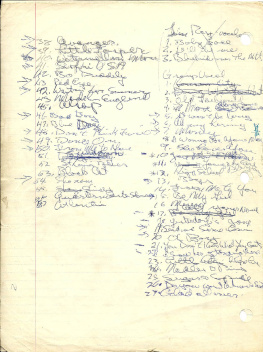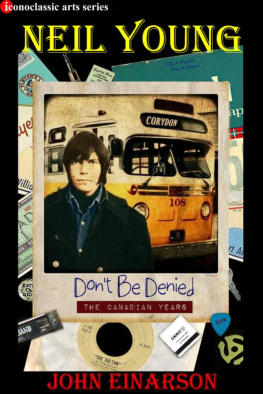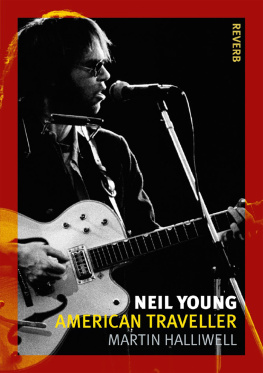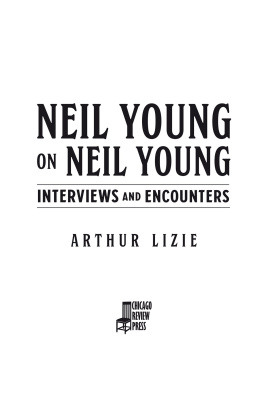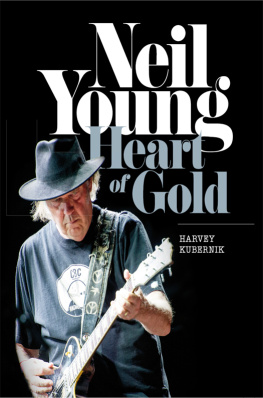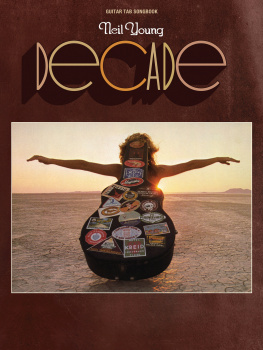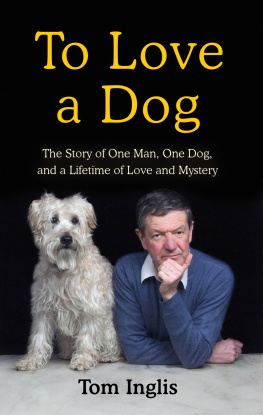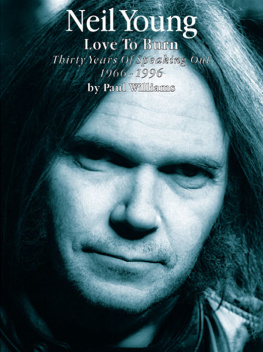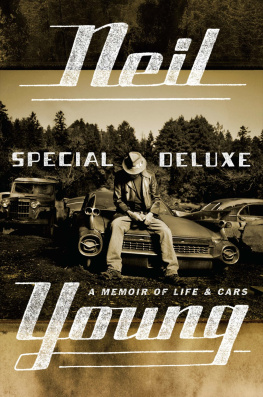Sam Inglis - Neil Youngs Harvest
Here you can read online Sam Inglis - Neil Youngs Harvest full text of the book (entire story) in english for free. Download pdf and epub, get meaning, cover and reviews about this ebook. year: 2011, publisher: Continuum, genre: Art. Description of the work, (preface) as well as reviews are available. Best literature library LitArk.com created for fans of good reading and offers a wide selection of genres:
Romance novel
Science fiction
Adventure
Detective
Science
History
Home and family
Prose
Art
Politics
Computer
Non-fiction
Religion
Business
Children
Humor
Choose a favorite category and find really read worthwhile books. Enjoy immersion in the world of imagination, feel the emotions of the characters or learn something new for yourself, make an fascinating discovery.

- Book:Neil Youngs Harvest
- Author:
- Publisher:Continuum
- Genre:
- Year:2011
- Rating:5 / 5
- Favourites:Add to favourites
- Your mark:
- 100
- 1
- 2
- 3
- 4
- 5
Neil Youngs Harvest: summary, description and annotation
We offer to read an annotation, description, summary or preface (depends on what the author of the book "Neil Youngs Harvest" wrote himself). If you haven't found the necessary information about the book — write in the comments, we will try to find it.
Neil Youngs Harvest — read online for free the complete book (whole text) full work
Below is the text of the book, divided by pages. System saving the place of the last page read, allows you to conveniently read the book "Neil Youngs Harvest" online for free, without having to search again every time where you left off. Put a bookmark, and you can go to the page where you finished reading at any time.
Font size:
Interval:
Bookmark:

Harvest
Also available in this series:
Dusty in Memphis by Warren Zanes
Forever Changes by Andrew Hultkrans
Harvest by Sam Inglis
The Kinks Are The Village Green Preservation Society by Andy Miller
Meat Is Murder by Joe Pernice
The Piper at the Gates of Dawn by John Cavanagh
Abba Gold by Elisabeth Vincentelli
Electric Ladyland by John Perry
Unknown Pleasures by Chris Ott
Sign O the Times by Michaelangelo Matos
The Velvet Underground and Nico by Joe Harvard
Let It Be by Steve Matteo
Live at the Apollo by Douglas Wolk
Aqualung by Allan Moore
OK Computer by Dai Griffiths
Let It Be by Colin Meloy
Led Zeppelin IV by Erik Davis
Armed Forces by Franklin Bruno
Exile on Main Street by Bill Janovitz
Grace by Daphne Brooks
Murmur by J. Niimi
Pet Sounds by Jim Fusilli
Romanes by Nicholas Rombos
Endiroduing by Eliot Wilder
Kick Out the Jams by Don McLeese
Low by Hugo Wilcken
In the Aeroplane Over the Sea by Kim Cooper
Music from Big Pink by John Niven
Pauls Boutique by Dan LeRoy
Doolittle by Ben Sisario
Theres a Riot Goin On by Miles Marshall Lewis
Stone Roses by Alex Green
Bee Thousand by Marc Woodworth
The Who Sell Out by John Dougan
Highway 61 Revisited by Mark Polizzotti
Loveless by Mike McGonigal
The Notonous Byrd Brother s by Ric Menck
Court and Spark by Sean Nelson
69 Love Songs by LD Beghtol
Songs in the Key of Life by Zeth Lundy
Use Your Illusion I and II by Eric Weisbard
Daydream Nation by Matthew Steams
Trout Mask Replica by Kevin Courrier
Double Nickels on the Dime by Michael T. Fournier
Peoples Instinctive Travels and the Paths of Rhythm by Shawn Taylor
Aja by Don Breithaupt
Rid of Me by Kate Schatz
Achtung Baby by Stephen Catanzarite
Forthcoming in this series:
Pretty Hate Machine by Daphne Carr
Lets Talk About Love by Carl Wilson
and many more

Sam Inglis

2011
Continuum International Publishing Group
80 Maiden Lane, Suite 704, New York, NY 10038
The Tower Building, 11 York Road, London SE1 7NX
www.continuumbooks.com
2003 by Sam Inglis
All rights reserved. No part of this book may be reproduced,
stored in a retrieval system, or transmitted in any form or by any
means, electronic, mechanical, photocopying, recording, or
other wise, without the written permission of the publishers.
Library of Congress Cataloging-in-Publication Data
Inglis, Sam.
Harvest/Sam Inglis.
p. cm.(33 1/3)
eISBN-13: 978-1-4411-8896-0
1. Young, Neil. Harvest moon. I. Title. II. Series.
ML420.Y75I54 2003
782.42166092dc21
Printed and bound in the United States of America
Youngs search for shelter from the storm resonates like a heartbeat, concluded Rolling Stones four-star review. Its author, Greg Kot, traced the songs along a path from restlessness to reaffirmation, describing a hushed musical landscape at times populated only by a ghostly harmonica, a few spooky bass lines and Youngs cracked, lonesome tenor.
The year was 1992; the album, Harvest Moon by Neil Young. Twenty years after the release of his best-selling LP, Young had at last done what his fans had stopped expecting him to do. Hed reformed the band that had backed him on Harvest, picked up his acoustic guitar and recorded a follow-up. The resulting album was almost a remake of its predecessor. Just as on Harvest, Young fleshed out a core of country-tinged ballads with a solo live recording, and hired his old friend Jack Nitzsche to provide an orchestral arrangement. He even called up the same celebrity backing singers whod turned out all those years ago to add the finishing touches to his only major hit single, Heart Of Gold.
Had Harvest Moon been released in 1973, Young would have been accused of standing still, of degenerating into self-pastiche. In 1992, however, it was greeted as the end of a great musical journey. In the two decades that separated Harvest from its sequel, Neil Young had gone from hippy hero to reactionary redneck and back. Shocked and appalled by the stardom Harvest had brought him, hed abandoned its winsome, country-tinged style and struck out for unknown shores. In a quest to lose his newfound audience, hed produced everything from ear-bleeding rock music to experimental electronica. In the 80s, Young had gone so far out there that few thought hed make it back; but back he was, and Harvest Moon was final confirmation of one of the most remarkable resurgences in rock history. Not so much a return to form as a trip back in time, it showed Young accepting at last what everyone else knew: that the original Harvest was a classic album, and should be celebrated as such.
Its a nice story, but the truth is more complicated. In 1992, Neil Young was back in the fold, lauded as the only artist of his generation still making essential music. It seemed obvious then that his most popular record must be an essential album, but it hadnt always looked that way. Rolling Stone itself had panned Harvest on release, John Mendelssohns scathing review salted with phrases like half-assed baloney, flatulent and portentous nonsense and weariest clichs. Throughout the 70s, a succession of rock writers portrayed Harvest as an album of superficial beauty, barren of new ideas or real emotion. Stephen Holden summed up the view of many when he described it as Youngs most compromised album.
Not all critics were as negative as Rolling Stones: the British music press, for instance, accorded rave reviews to both Harvest and Heart Of Gold. Yet it would be fair to say that Harvest was a hit despite the press, rather than because of them; and its not only rock critics who have expressed distaste for Youngs most successful album. Ask serious Neil Young fans to name their favourite album of his and youll hear votes for any one of ten or so, but Harvest is unlikely to be among them. If you love Young for the searing rock n roll of Rust Never Sleeps or the raw emotion of Tonights The Night, Harvest is too safe, too bland, too popular.
In the few interviews hes given since its release, Neil Young has played along with the idea that Harvest was an aberration, and that its success drove him to seek the musical wilderness. When he compiled his triple-album retrospective Decade, he included half of Harvest, but undermined Heart Of Gold with an equivocal liner note: This song put me in the middle of the road. Travelling there soon became a bore so I headed for the ditch. A rougher ride but I met more interesting people there. When he did eventually record the sequel, he gave the impression of having suffered twenty years sustained pressure to do so: When people start asking you to do the same thing again and again, he told
Next pageFont size:
Interval:
Bookmark:
Similar books «Neil Youngs Harvest»
Look at similar books to Neil Youngs Harvest. We have selected literature similar in name and meaning in the hope of providing readers with more options to find new, interesting, not yet read works.
Discussion, reviews of the book Neil Youngs Harvest and just readers' own opinions. Leave your comments, write what you think about the work, its meaning or the main characters. Specify what exactly you liked and what you didn't like, and why you think so.

